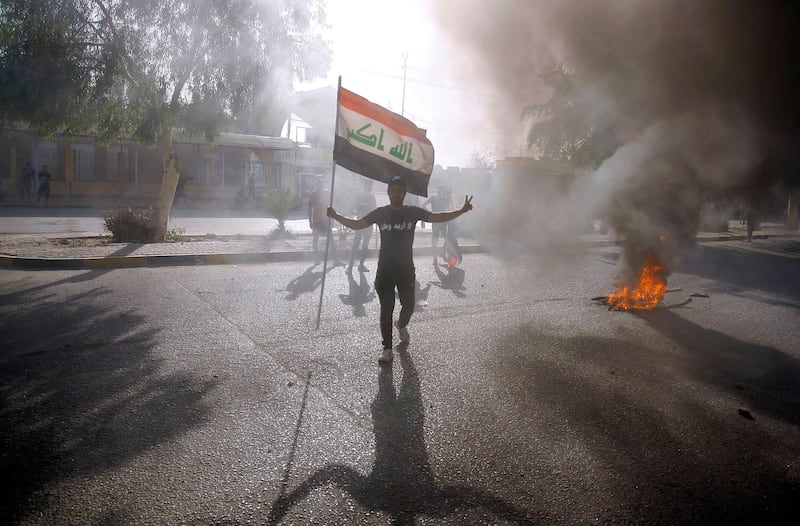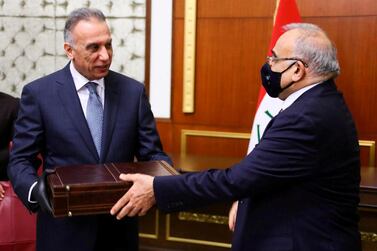Iraq's south is witnessing renewed protests against poor living conditions, sectarianism and rampant corruption in the oil-rich country. The mass movement initially started in October. Widespread poverty, unemployment and Iran's interference in the country drove young Iraqis from its disenfranchised south to the streets. Protesters are now asking for local governors to resign over their poor management of the coronavirus crisis and years of corruption.
The new wave of protests comes at a symbolic time. Today is the six-year anniversary of ISIS's takeover of Mosul. Three years after its liberation, the forsaken city still bears the scars of wars, with little tangible reconstruction plans for its destroyed neighbourhoods. Mosul has become a symbol of the country's political class failing to serve their people, with widespread corruption and Iran's armed proxies weighing heavily on the nation.
Nine months after the onset of last year's protests, demonstrators have many legitimate demands that are yet to be fulfilled, but they have also scored important victories.
The protests have succeeded in forcing former prime minister Adel Abdul Mahdi to resign. An Iran-aligned politician, Mr Abdul Mahdi oversaw the bloody crackdown of peaceful protesters, killing nearly 700 people. After months of back-door negotiations, a promising new government led by Prime Minister Mustafa Al Kadhimi was ushered in last month.
The US-backed former head of Iraqi intelligence has vowed to hold accountable those responsible for the deaths of protesters. He has also ordered the interior ministry – run by Othman Ali Farhood Musheer Al Ghanimi – to form a commission to investigate corruption and misconduct in local governorates. On a diplomatic level, Mr Al Kadhimi is working towards mending Iraq’s relations with neighbouring Arab countries. The first foreign visit by a member of his Cabinet was by Deputy Prime Minister and Finance Minister Ali Allawi, who met with officials in Kuwait City and Riyadh in the hope of drawing new economic opportunities to Iraq. He recently said he was working on easing bureaucratic hurdles that the two Gulf countries had cited as a deterrent for investment.
Renewed protests can give momentum to these positive steps and add pressure on the corrupt political parties and militias threatening both the lives of protesters and the scope of action that the government can take.
Yet, the change that Iraq's youth yearn for and deserve is impossible to deliver immediately. Although some highly qualified people are now at the helm of the country, their appointment has come at a challenging time in Iraqi history.
Key cabinet members have only been fully approved a few days ago despite government having been formed last month. Pressure from Iran-backed militias and self-serving political groups delayed full government formation. The catastrophic economic situation that sparked mass protests last year is now further compounded by the financial downturn of the coronavirus and a drop in oil prices.
Years of mismanagement and corruption at all levels of governance, after decades of war and sanctions, have left the coffers of the Iraqi state “nearly empty” according to the country’s own prime minister. Revamping this dysfunctional system to deliver justice, better living conditions and more opportunities while managing Iran’s ambitions in Iraq is an immense challenge. It cannot be surmounted overnight, but it is now being pursued by both the Iraqi people and their leaders.






